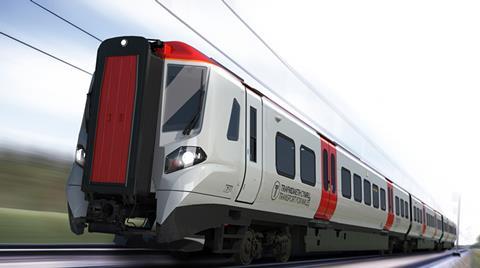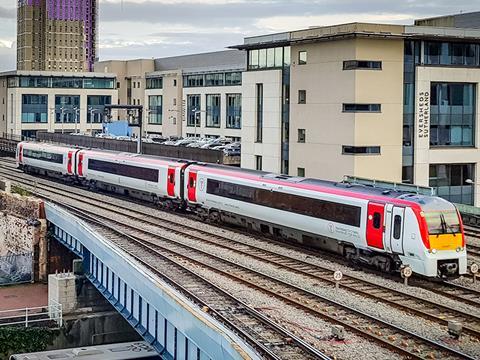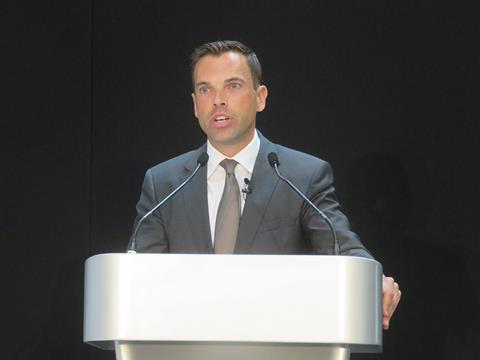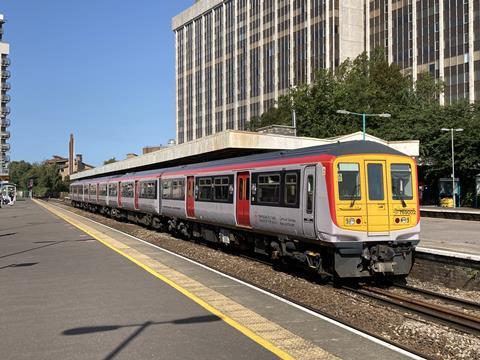
UK: The Welsh Government took Wales & Borders passenger services into public ownership on February 7, insisting that the move which had been announced in October would provide longer-term financial stability to ‘protect services, safeguard jobs and deliver infrastructure improvements in light of the ongoing challenges of coronavirus.’
Wales & Borders services had been operated by a joint venture of SNCF subsidiary Keolis and engineering company Amey under a 15-year Operator & Development Partner contract awarded by the Welsh Government which began on October 14 2018.
However the impact of Covid-19 saw a significant reduction in passenger numbers, which hit a low of 5% of normal levels as a result of lockdown measures.
On March 31 2020 the Welsh Government announced £40m of short-term support to ensure that passenger services could continue to operate. This was followed on May 31 by a £65m six-month Emergency Measures Agreement, which saw the financial risk of the franchise taken on by the Welsh Government, ensured key infrastructure projects could continue to be delivered, and funded free travel for National Health Service staff.

New structure
Following the transfer, day-to-day train operations are now the responsibility of TfW subsidiary Transport for Wales Rail Ltd.
Management and modernisation of the infrastructure on the Core Valley Lines routes around Cardiff which are owned by the Welsh Government since being transferred from Network Rail last year will continue to be delivered under the current contract with Amey Keolis Infrastructure Ltd. This is intended to provide stability for the effective delivery of the South Wales Metro project.
A new Innovation Services partnership between Transport for Wales, Keolis and Amey will progress the delivery of commitments such as integrated ticketing, on-demand transport, design and delivery of projects including different modes of transport, and the integration of heavy rail and future light rail services.

Critical asset
‘Our rail service is a critical asset and one we must protect’, said Ken Skates, Minister for Economy, Transport & North Wales. ‘Since the pandemic began we’ve provided significant financial support to keep trains running. The need for greater public control is a reflection of the ongoing pressures of coronavirus and the challenges being faced across the rail industry as passenger demand remains low.
‘We remain determined to deliver key commitments made at the start of the journey with Transport for Wales, including the creation of Metro systems and the delivery of brand new rolling stock. Bringing the rail franchise into public control will help secure this better future for passengers. It is a public transport asset, in public ownership, for the public good.’
KeolisAmey Wales reported that, ‘despite obvious challenges, we have delivered 97% of the obligations that are due at this stage in the contract’. A spokesperson said the company ‘would like to pay tribute and thanks to all our hard-working employees who played their part in the enormous progress we made laying the foundations for transformation and who were central to our success, since we were awarded the Wales and Borders franchise in 2018.
‘We welcome the confidence shown in our experience and expertise by Transport for Wales and the Welsh Government with the establishment of a new joint venture, which will provide support and advice across key strategic projects for public transport in Wales. Keolis and Amey look forward to continuing to support communities across Wales post-Covid through the joint venture, and our involvement in delivering the vision for the South Wales Metro.’
Commenting on the ’welcome and timely development’, RMT General Secretary Mick Cash said the union would ’continue to make sure that the staff at the frontline of this new arrangement are properly looked after and properly rewarded’. However, he added that the Welsh decision ’makes a mockery of the continued refusal to bring Scotrail under public ownership, and the halfway house in England that allows private companies to extract profits although the services are under de facto public ownership’.

Fleet renewal
According to Transport for Wales, progress with the modernisation of the Valley Lines network and wider fleet continues as planned.
Later this year testing will begin with the first of the 77 CAF Civity Class 197 DMUs which are under construction at the manufacturer’s Newport factory for use on North Wales, Cambrian and Marches services; 21 two-car units will be fitted with ERTMS for the Cambrian Lines.
The first of nine Class 769 electro-diesel multiple-units converted from Class 319 EMUs entered service on the Rhymney – Cardiff – Penarth route in late 2020; these are operating as DMUs, with the pantographs having been removed.
The first three of five Class 230 diesel/battery hybrid sets converted by Vivarail from ex-London Underground D78 stock are now undergoing testing ahead of introduction on the Bidston – Wrexham route.

















